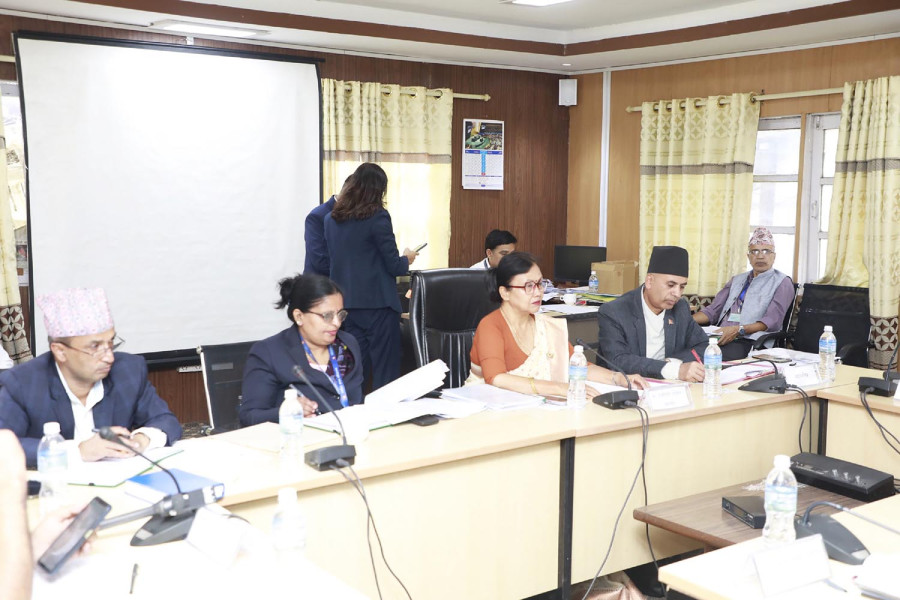National
Government under fire for ignoring inclusiveness in envoy picks
Lawmakers across the political spectrum allege exclusion and constitutional breaches.
Binod Ghimire
Crossparty lawmakers have strongly criticised the government’s repeated disregard for the principles of inclusiveness in ambassadorial nominations.
Despite continued commitments from leaders to ensure representation from various communities, the majority of ambassadorial candidates picked for various diplomatic missions are Khas-Arya males.
On July 29, Prime Minister KP Sharma Oli’s Cabinet nominated ambassadors to 18 countries. It forwarded 17 names, excluding that of Kanta Rijal, who was recommended for Australia, for parliamentary hearing.
As the parliamentary hearing committee opened complaints lodged against the nominees, lawmakers from both the ruling and the opposition parties criticised the selections. Out of nine complaints the committee received, three highlighted violations of inclusive principles.
Speaking at the committee meeting, CPN-UML’s Ishwari Gharti said the government must be strongly reminded to adhere to the constitutionally-mandated principle of proportional representation.
“Among the 17 nominees, over 82 percent are from the Khas-Arya community. Barely 17 percent are janajatis,” she said. “There is no representation of Madheshi, Dalit, Tharu and Muslim communities.”
The government has nominated Lok Darshan Regmi for the United States, Krishna Prasad Oli for China, Chandra Ghimire for the United Kingdom, and Shiva Maya Tumbahamphe for South Korea. Other nominees for ambassadors include Shail Rupakheti for Germany, Kapil Man Shrestha for South Africa, Dhan Prasad Pandit for Israel, and Naresh Bikram Dhakal for Saudi Arabia.
Additionally, the Oli Cabinet picked Prakash Mani Poudel for Portugal, Rita Dhital for Pakistan, Sanil Nepal for Spain, Netra Timsina for Malaysia, and Jung Bahadur Chauhan for Russia. Likewise, Ramesh Chandra Paudel has been nominated for Qatar, Sumnima Tuladhar for Denmark, and Ram Krishna Bhattarai for Sri Lanka.
Criticising the nominations as contrary to the spirit of the constitutional mandate for proportional representation in all state institutions, Prakash Adhikari of the Janata Samajbadi Party (Nepal) urged the committee to reject the nominees. “The government never abides by its commitments. This committee will lose its essence if it continues to endorse names recommended in violation of the constitution,” he said.
On several occasions, the hearing committee has drawn the attention of the government to ensure fair representation of all communities in ambassadorial appointments. “We have raised this issue with the foreign minister before, but the old attitude hasn’t changed. This is serious,” said Ananda Dhungana of the Nepali Congress.
In August last year, the committee had summoned then foreign minister NP Saud following public complaints that principles of inclusiveness were ignored in ambassadorial nominations. He had assured to make future nominations more inclusive.
Nirmala Devi Lamichhane Osti, joint secretary at the committee, said other than ignoring the principles of inclusion, there are complaints against Shrestha, Sharma, Timsina and Pandit. There are complaints against Pandit that as someone hauled up by the National Information Commission for hiding information, he does not have the moral ground to be an ambassador.
Timsina has been accused of being involved in vandalising the property of the Nepal Red Cross Society. He was appointed as chair of the society by the then Oli government in July 2020, but landed in controversy for his failure to effectively lead the organisation.
Similarly, a complaint has been lodged against Sharma, citing a violation of the directives on ambassadorial appointments. The directives state that an ambassador cannot be reappointed to the same country for another term. Sharma, who was recalled as the envoy to India, has again been nominated for the same post.
Likewise, another complaint challenges the nomination of Shrestha, a former member of the National Human Rights Commission, arguing that his appointment would violate the constitution. Article 248 of the constitution says a person who has been the chairperson or a member of the commission shall not be eligible for any other government service.
“The committee has decided to call in the complainants on Friday and will start hearings for the nominees between September 1 to 8,” said Osti.




 23.12°C Kathmandu
23.12°C Kathmandu














